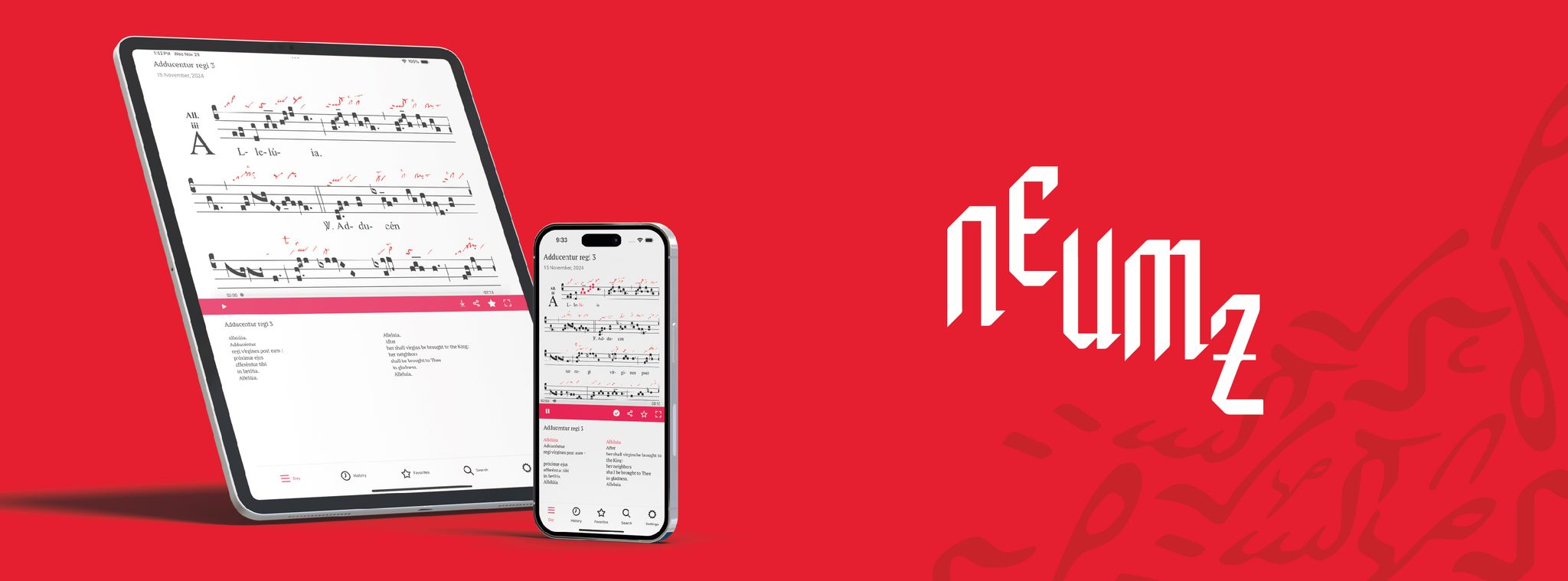Ecce Quam Bonum 1
Today we celebrate the 28th Sunday in Ordinary Time with the chant of the Gradual Responsory. This piece sets a verse from one of the shortest psalms, Psalm 132, which symbolises the consecration of the High Priest by the effusion on his head of an oil composed of precious fragrances: the effusion was abundant and flowed down his beard, even into his robe, so that the people around him were embalmed with that sweet smell. In these two verses, the Church, in a kind of contemplation, evokes the long-awaited days of the heavenly Jerusalem, when we will be one in Christ, and the grace of his eternal consecration descending upon us will envelop us in sweetness, like the perfume of the High Priest of old.
On the other hand, we can see in this marvellous work fraternal love and its relationship, through a very eloquent double image of perfume (sicut unguentum) and dew (sicut ros), with divine love, the fragrant source of all love: the love that is the fruit of Man's communion with God and the love between human beings. God is Love, St John tells us, and this truth, the culmination of Revelation, must radically transform human relationships, since God calls men and women to participate in this divine love, which emanates from him (fons amoris). We are all brothers and sisters as children of the Creator. It is love in its social and most universal dimension that is sung here - love between two persons only, within a community, on a global scale, between the different peoples of the earth. There are no exceptions for anyone. No individual, no race, no social class can be excluded from such love, because the radical brotherhood of human beings is prior to all kinds of distinctions which, historically, have known how to separate men by scattering them on earth.
We all share this ideal and we all at the same time shake it up with our disagreements, our conflicts. We all dream of a humanity at peace with itself, of a better world where everyone can find happiness and where we know exactly what it is. The enemy of fraternal love is individualism, indifference, an evil that has always been present, but unfortunately it is increasingly pressing us, especially in the present times in which we live: indifference, individualism lead us to disaster; only fraternal union, solidarity will make us stronger and we will be able to overcome any trial that is sent to us.
The psalmist describes this love of neighbour as a pleasant fragrance. Today we must strive, more often than not, to bear witness to this love, as if it were no longer natural to us. Of course we have friends with whom it is easy to get along. We have chosen them or they have crossed the path of our lives and we welcome them with gratitude. But it is a little more difficult for us to open up to all our fellow human beings and really savour this universal love. It is not so much a matter of feeling, but rather of living a deeper love, in faith, a love that can be lived forever because it comes from the spirit.
This psalm presents two very subtle images, that of fragrance and that of dew, in order to deepen the pleasant but also spiritual character of this love. It shows that this authentic brotherly love is divine, it comes down from heaven; God makes us sharers in his own love. The mention of Aaron, the High Priest, ultimately represents Christ. And his anointing with this ointment takes place, that is to say, the Holy Spirit who is Love in God, descends first on Christ, on his humanity, with the metonymy of his beard, then from the beard to the border of his robe, that is to say, to the Church, the dwelling place of God, his dwelling place which is impregnated and embalmed with this fragrance.
As for the melody, the first section, built on the D and A, the essential notes of mode I, is very delicate, pure evocation. Something mysterious and smiling at the same time appears in the semi-tone cadenza of Ecce, which then extends into the peaceful neumas full of bonum and jucundum. It is like a look of admiration projected by the Church on the beautiful future that is there, very near. Desire mingles with this, but is lost in the ecstasy of this passage to awaken at habitare and immediately envelop with its ardour the words that describe the beautiful reality of tomorrow, habitare fratres in unum: this splendid brotherhood of all men in Christ.
The peaceful contemplation in the body of the Gradual Responsory immediately blossoms in the verse which begins again with the essential notes of the first mode. In the word unguentum the soul is carried away and manifests all the joy, the beatitude that emanates from the union that is about to take place. Wide neumas unfold in elegant, light curves in continuous movement. Is it to sing of Christ, head of this new race? It could be. In descendit there is a burning enthusiasm. The melody rises as high as the voice can soar, moves wide and sonorous, then descends through linked and flowing neumas that symbolise the sacred fragrances of the High Priest and, even more the grace that, from Christ, descends on the faithful and makes them part of a whole in him. How marvellous this high E that descends towards the low A of Barbam Aaron, with an imperturbable peace; the melody takes on a deep and grave character in the final cadence, in the image of the mystery that it sings.
